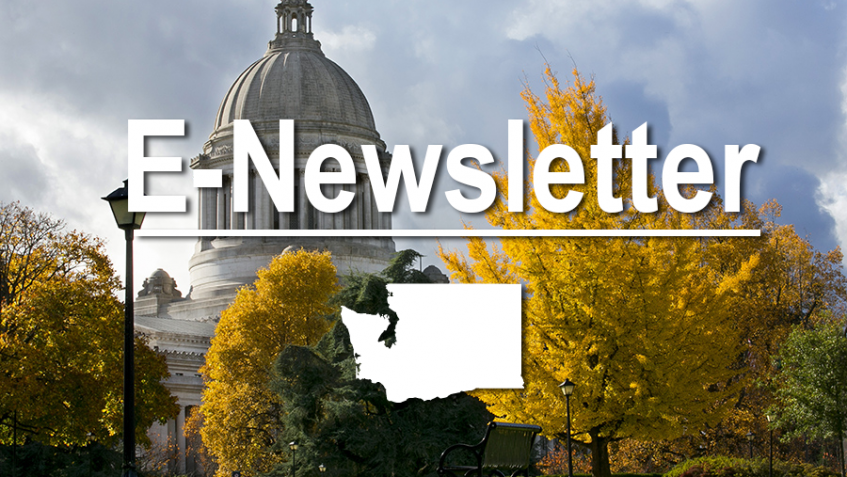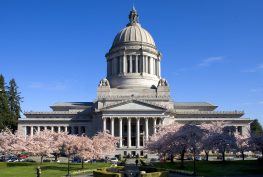Dear friends and neighbors,
The 105-day 2023 legislative session and 1-day special session have adjourned (called Sine Die), and I wanted to give a brief update on what we did this year. I’ll continue to keep in touch with you in the coming months about many of the other issues that we worked on this year, like addressing housing, healthcare, education, women’s rights, and much more.
The state budget for 2023-25
Our state operating budget was passed on the final day of session and has now been signed by the Governor. As a member of the Senate Ways & Means Committee, I was privileged to play a role in reviewing, perfecting and voting on the bills and policies that we will fund, or not fund. The budget is the most important bill of the year that we take action on – a true statement of our values and priorities as a state. As usual, there are things to like about the budget, and things that I think we could have done better, but that’s democracy in action. Overall, according to the feedback I’ve received, it’s generally considered a great budget.
Our operating budget has $2.9 billion in additional funding for K-12 education – the biggest increase since the McCleary decision – including $417 million for special education. That also includes a continuation of our work from last biennium to fund more nurses, counselors, and social workers in schools. Altogether, our hope is that this alleviates the financial pressure that local districts are under due to declining enrollment and one-time federal funding drying up.
Our capital budget also made major investments in housing, with $400 million for the Housing Trust Fund to directly build more housing for folks making less than 80% of the area median income, and a total of about $750 million in housing investments all together. While this still won’t solve our affordable housing crisis or get everyone who needs one into a home, it’s a real and meaningful step forward.
Personally, I wish we could have done more to increase equity in Washington’s tax structure. I think there was a missed opportunity to bring more tax fairness to working families. We had a progressive revenue option on the table this year known as the Washington State Wealth Tax to get billionaires to pay more of what they’re socially and morally obligated to pay (a 1 percent tax on financial intangible assets like stocks and bonds in excess of $250 million), but that legislation didn’t make it through. And of course, this session saw its share of more corporate tax breaks. Another longstanding frustration of mine has been the failure to address many of our funding woes by creating a publicly owned bank. This is one of those “no-brainer” proven-to-work solutions that would increase our public financing capacity immensely by allowing us to borrow from and repay ourselves, leverage our tax dollars and keep our money working for us locally rather than exporting it as profits to Wall Street.
I voted for this budget because I thought it was an important step forward on many of our top priorities as a district and a state. But I’m also going to continue to advocate for truly transformative action for working people and to build a stronger and more equitable future for all Washingtonians. We’re going to have to continue our work in 2024 and beyond on the people-centered values that I know you and most of our neighbors share with me.

My legislation
A couple of my bills passed this year that I’m excited about – one that’s very important locally, and one that helps to make action happen nationally.
Senate Bill 5268 is focused at making sure that small businesses – and particularly those owned by people of color, women, and veterans – are getting their fair share of public contracting opportunities. By helping these small businesses get on an approved roster to be contractors and subcontractors for state and local government work, we can help these businesses that are often unseen and unheard get the work they deserve distributed in an equitable manner. It also helps make sure that money spent on public projects is bringing real benefit to the communities that the projects are being built in, by making it easier to hire local contractors and workers. This was a bill that brought labor, business, public owners, private industry sectors, insurance industry, architects, and other construction professions together to pass in a collaborative process, and I was very glad to see it pass unanimously through both Chambers of the legislature.
Senate Joint Memorial 8001 is a message of our Legislature’s will to Congress, calling for the passage of H.R. 3339, the National Infrastructure Bank Act. A national infrastructure bank (NIB) is a federal solution analogous to our publicly owned state bank proposal and would help us finance infrastructure investments at a lower cost – rather than having to borrow money from Wall Street banks and global investors. This would also save all the costs and fees associated with that borrowing, and use the power of banking to drastically increase our financing capacity for to maintain and build new infrastructure to meet the rapidly changing needs of the 21st Century, which our current system has proven to be woefully inadequate.
The NIB would create $5 trillion of much needed financing capacity for infrastructure projects, create at least 25 million jobs, distribute the financing capacity with an eye on equity, and do all this without raising taxes or increasing our national debt.
I talked about these bills in a video update from the Capitol – you can watch that here:
Voting Against the War on Drugs
The Legislature was called into a special session by the Governor to deal with one issue: to consider whether to reinstitute criminal penalties for simple personal drug possession. This bill was referred to as the “Blake” fix to address a State Supreme Court ruling that our simple possession of a controlled substance law was unconstitutional because it didn’t distinguish between knowing and unknowing possession and some people were suffering from many legal consequences even though they had no idea their child’s acquaintance had left a bag of something in the back seat (for instance).
The bill that ultimately passed in the recent one-day special session ballooned from simply defining the difference between knowing and un-knowing possession of a controlled substance for personal use, which is what the Supreme Court ruling required us to do, into an omnibus drug policy law, which had many good and needed pieces to increase treatment and diversion opportunities and provide a lot of money to support those programs. But, it also raised our criminal penalty for simple possession from a misdemeanor to a gross misdemeanor, increased jail sentences, limited our ability to run the harm reduction and treatment programs that actually help people who are in trouble, failed to acknowledge that many more overdose deaths happen upon release from incarceration, and raised new barriers to successful recovery by making housing, jobs, credit, etc. much more difficult to attain.
In the final analysis, I voted against the harsh recriminalization of a mental health condition in this bill. Drug addiction is a behavioral health issue. Locking people up in jail who are in the grip of addiction and cannot control this behavior and hamstringing them with a criminal record doesn’t help them recover—in fact, experts and professionals say it actually makes things worse. There is general recognition that the “War on Drugs” strategy has failed with disastrous consequences on families, poor people and communities of color, and its bad strategy to double down on failed policy by ramping up criminal penalties and raising barriers to future employment and housing that we know are key to recovery.
When the bill initially left the Senate with the recriminalization piece, nine of our ten Members of Color voted against the bill, as did 15 of the 29 Democrats in the Senate. The House insisted in its decriminalization version, which is why the bill died by the end of regular session. After session ended, negotiations continued with an arbitrary mandate that it needed to be a bipartisan bill. In the end, the final bill was sweetened with more money for recovery services but the “bipartisan” result increased the criminal penalty. The impacts of this bill will need to be critically monitored into the future.
You can read more about the bill and the “Blake issue” in this article. (Also this South Seattle Emerald article) Seattle Times article ACLU article
Stay in touch
Thank you for reading these updates! With another session passed, I am honored to have the chance to represent you in the Senate. If you have thoughts or feedback, feel free to contact me at Bob.Hasegawa@leg.wa.gov – your thoughts and input are helpful as we spend the summer preparing our agenda for the 2024 session.
Be well, my friends
Sen. Bob Hasegawa





